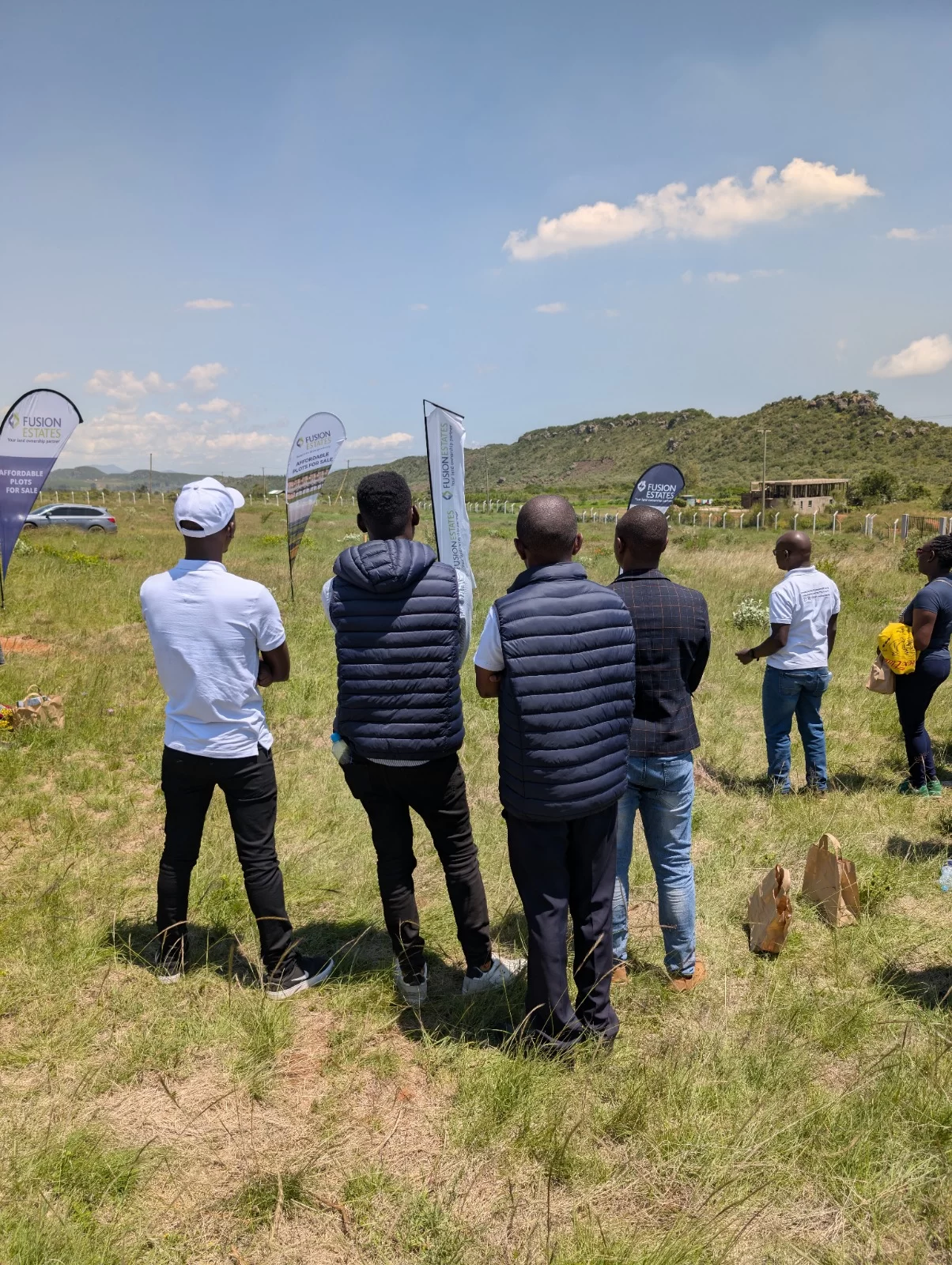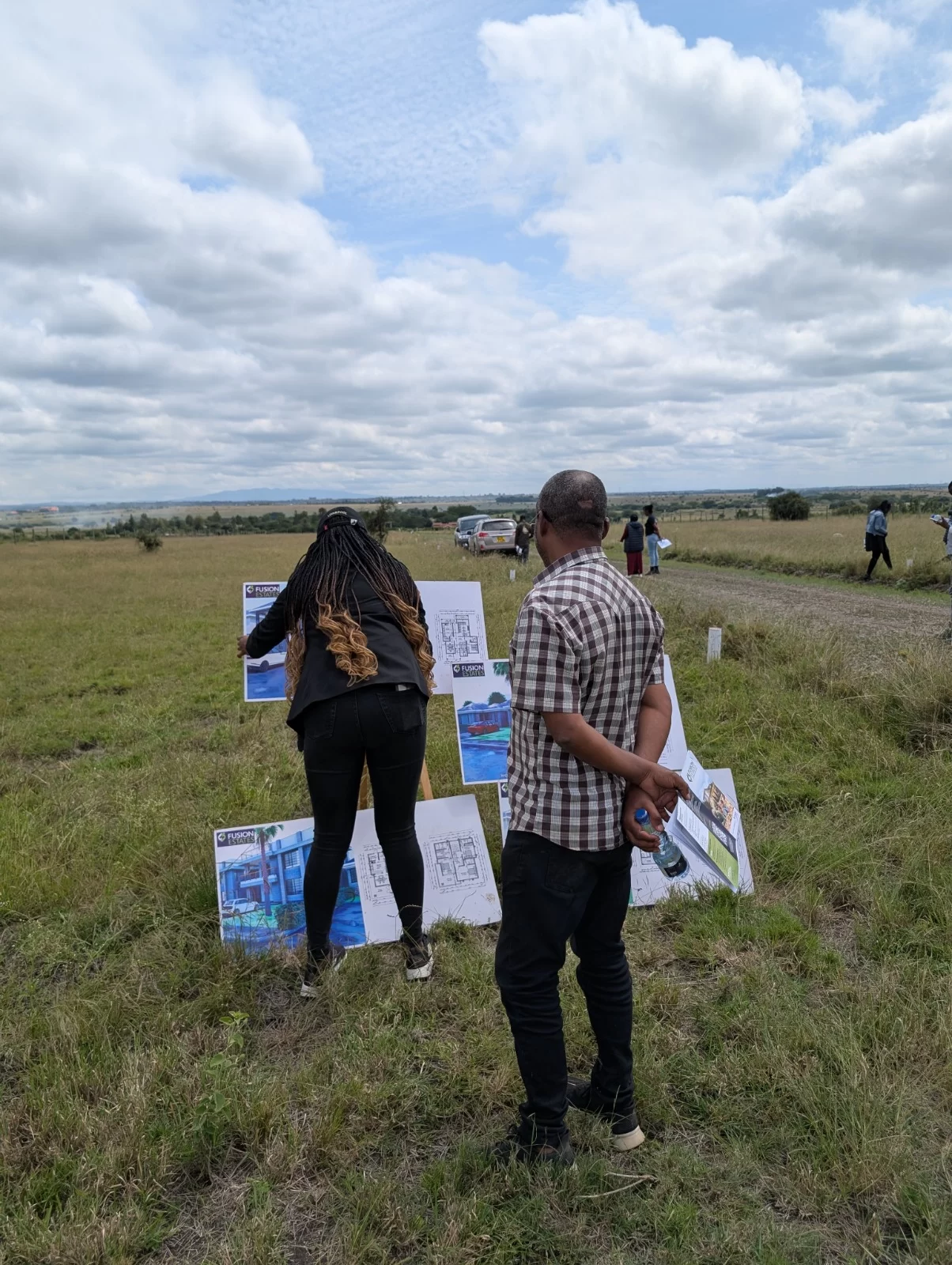About Us
Kenya’s Trusted Partner in Land & Property
At Fusion Estates, we believe that real estate is more than just land and buildings, it’s about helping people create a future they’re proud of.
We are a registered real estate company in Kenya and a proud subsidiary of Fusion Capital Limited, a leading private equity and real estate firm with over 19 years of experience across Kenya, Uganda, and Rwanda. With a solid track record and an asset portfolio valued at over $200 million, Fusion Capital has laid the foundation for our bold approach to land sales and property management.
We also offer end-to-end property management, taking care of both residential and commercial properties with integrity, transparency, and professionalism.



Mission
To offer transparent and credible home ownership solutions to African families.
Vision
Building thriving communities in Africa
Discover Affordable Plots for Sale
- 1/8 | 1/4 Acre
- From Ksh 3,300,000
- 1/8 | 1/4 | 1/2 | 1 Acre
- From 450,000
- 1/8 Acre
- From Ksh 980,000
- 1/8 Acre
- From Ksh 1,500,000
FAQs – Investing in Land
Why invest in land locally?
Land offers long-term security, steady appreciation, and affordability especially in growing areas like Kikuyu, Juja, and Kitengela.
What should I consider before buying land?
Think about location, purpose (residential, commercial, agricultural), infrastructure, legal status, and land topography.
How do I verify land ownership?
Use the eCitizen portal to do a land search for KES 500. It confirms ownership and any issues tied to the land.
What documents are needed?
Title deed, transfer form, ID, KRA PIN, clearance certificates, consent to transfer, and valuation.
Do I need a lawyer or agent?
Yes. A lawyer ensures legal accuracy, and a trusted agent helps you navigate the process. Fusion Estates offers full support.
How can I avoid land fraud?
Verify ownership, use a surveyor, hire a lawyer, and avoid suspiciously cheap deals.
Are there ongoing costs?
Yes, land rates, ground rent (for leaseholds), service charges (if applicable), and capital gains tax when selling.
How can I avoid land fraud?
Verify ownership, use a surveyor, hire a lawyer, and avoid suspiciously cheap deals.
Are there ongoing costs?
Yes, land rates, ground rent (for leaseholds), service charges (if applicable), and capital gains tax when selling.
Can I build immediately after purchase?
You can, as long as you follow zoning laws and get approvals from local authorities.
What are the risks of land investment?
Potential risks: disputes, fraud, regulation changes, and environmental concerns.
How long does the process take?
Typically, 30–90 days depending on due diligence and paperwork.
Can I get financing?
Yes, via banks, SACCOs, microfinance institutions, or REITs.
How do I know if land will gain value?
Look for proximity to urban centers, new infrastructure, and ongoing government or private developments.
